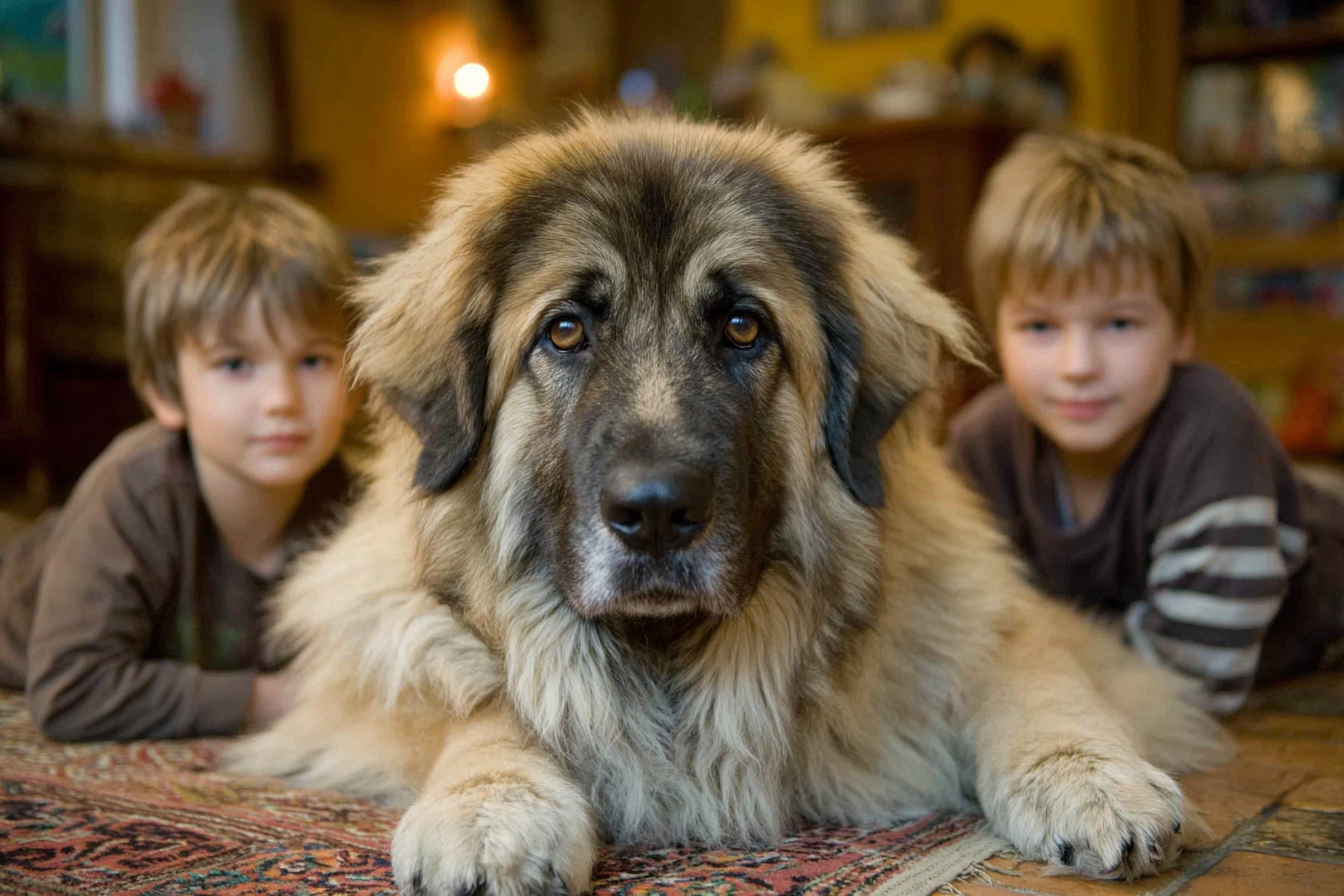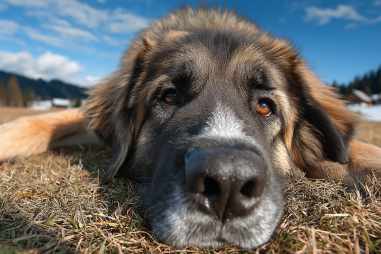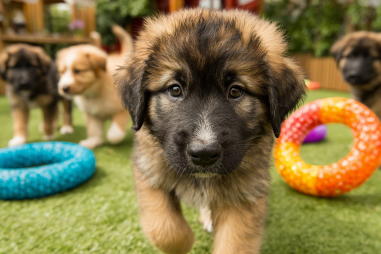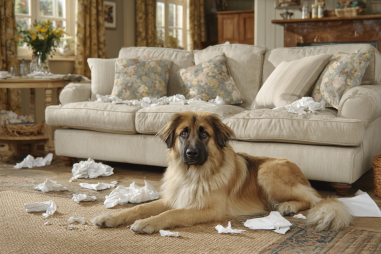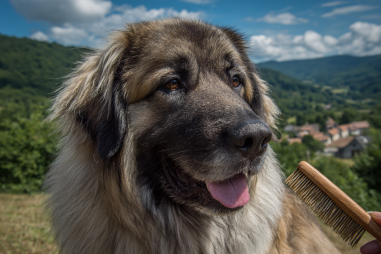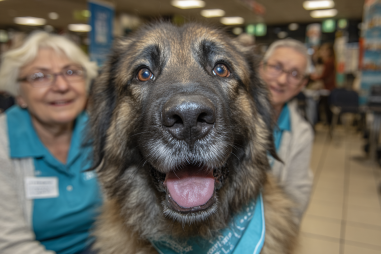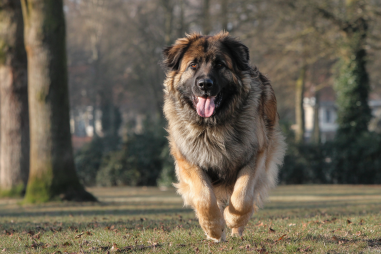Leonbergers are known as gentle giants for good reason. These majestic dogs combine a commanding appearance with a warm and affectionate nature, making them beloved family companions across the world. If you’re considering welcoming a Leonberger into your home or simply curious about what makes their temperament unique, understanding their behavior is key. From their social needs to how they interact with children and other pets, this guide covers everything you should expect from this remarkable breed.
Typical Leonberger Personality Traits
Leonbergers are often described as calm, friendly, and affectionate dogs. Their temperament generally reflects a composed and even-tempered demeanor, which is why they are often recommended as family pets. Despite their large size and impressive presence, Leonbergers are not aggressive; they typically have a gentle disposition and a patient nature.
Key personality traits of Leonbergers include their loyalty, intelligence, and eagerness to please. These traits make them highly trainable, though their size means that early and consistent training is important to ensure good manners. Leonbergers also enjoy being involved in family activities and tend to develop a strong bond with their human companions.
While they are usually confident dogs, Leonbergers do not have a strong guarding instinct, favoring instead a protective and watchful approach without being overly territorial or aggressive. They tend to be sociable dogs that appreciate company, whether from humans or other animals.
Interaction With Children and Families
One of the most heartwarming qualities of Leonbergers is their natural affinity for children. Their calm and patient temperament allows them to be gentle with young family members. Leonbergers often show a nurturing attitude, almost like a gentle protector to kids, making them excellent family dogs.
It’s important, however, to supervise interactions between any large dog and young children to prevent accidental injury, especially considering the dog’s substantial size. Leonbergers tend to be very tolerant, but children should also be taught how to respect the dog’s space and signals.
In a family setting, Leonbergers thrive on interaction. They enjoy being included in daily routines, whether it’s going for walks, playtime, or simply lounging around with their humans. Their affectionate and loyal nature makes them eager companions who love to share in family moments.
Socialization Needs
Like all dogs, early socialization is critical for a well-adjusted Leonberger. Introducing them to a wide variety of people, environments, sounds, and experiences when they are puppies will help them grow into confident adults. Because of their natural social and gentle nature, Leonbergers typically adapt well to new situations once properly socialized.
Socialization should include encounters with different types of people — children, men, women, and elderly individuals — as well as other animals. This helps prevent shyness or fearfulness and encourages a calm, friendly attitude even in unfamiliar settings. Positive reinforcement during socialization activities enhances their willingness to engage and explore confidently.
Given their size and strength, it’s essential to manage their social development carefully. Providing consistent rules, positive training methods, and plenty of positive experiences will foster a dog who is both sociable and well-mannered.
Behavior With Other Pets
Leonbergers usually get along well with other pets, particularly if socialized with them from a young age. Their gentle nature often translates into patient, tolerant behavior toward other dogs and even smaller animals. They are less likely to display aggression toward other household pets unless provoked.
Introducing a Leonberger to other dogs or pets requires the same thoughtful socialization approach as with people. Controlled meetings with gradual interactions and positive associations help ensure friendly relationships. Because of their size, supervision is important during early interactions with smaller animals to prevent unintentional harm.
In multi-pet households, Leonbergers often enjoy the companionship of other animals and form strong bonds, sometimes showing protective tendencies toward their furry housemates. This harmonious behavior further highlights the breed’s affectionate and easygoing temperament.
Managing and Encouraging Positive Behaviors
Training and managing a Leonberger’s behavior effectively relies on understanding their gentle but intelligent nature. Positive reinforcement training methods – such as treats, praise, and play – work best, as they respond well to kindness and encouragement rather than harsh correction.
Consistency in rules and routine is essential to help a Leonberger learn acceptable behaviors. Because they are eager to please, they thrive with clear communication and plenty of mental stimulation. Activities like obedience training, nose work, and interactive play can keep them engaged and mentally satisfied.
Their physical exercise needs, while not extreme, must not be overlooked. Moderate daily walks, swimming, or gentle play sessions help maintain their physical health and prevent boredom-related behaviors. A mentally and physically tired Leonberger is more likely to exhibit calm, positive behaviors around the home.
Additionally, providing designated spaces for them to relax and retreat when needed supports their emotional well-being. These gentle giants appreciate having a quiet place to unwind away from high activity or noise.
Recognizing and Addressing Issues
While Leonbergers are generally stable and friendly, like all dogs they can experience behavioral issues if their needs are unmet or if they feel insecure. Signs of problem behaviors might include excessive barking, chewing, or signs of anxiety such as pacing or restlessness.
Often, these behaviors result from insufficient exercise, lack of mental stimulation, or improper socialization. Addressing the root cause by increasing physical activity, introducing engaging toys, or revisiting socialization can help alleviate many issues.
If more serious behavioral concerns arise, such as fear aggression or intense anxiety, seeking assistance from a professional dog trainer or behaviorist is recommended. Early intervention is key to preventing escalation and helping the Leonberger develop coping mechanisms consistent with their calm, stable nature.
Routine veterinary checkups can also rule out any medical causes behind sudden behavior changes, ensuring your dog’s health and happiness remain priority.
Embracing Life With a Leonberger
Living with a Leonberger means embracing the joy of having a devoted, affectionate giant who loves family life. Their temperament and behavior make them ideal companions for those who appreciate a gentle, loyal dog with a calm demeanor. While they require commitment to training, socialization, and exercise, the rewards of their companionship are deeply fulfilling.
If you provide consistent love, care, and guidance, a Leonberger will repay you with unwavering loyalty and tenderness, making them a truly exceptional addition to your household.

